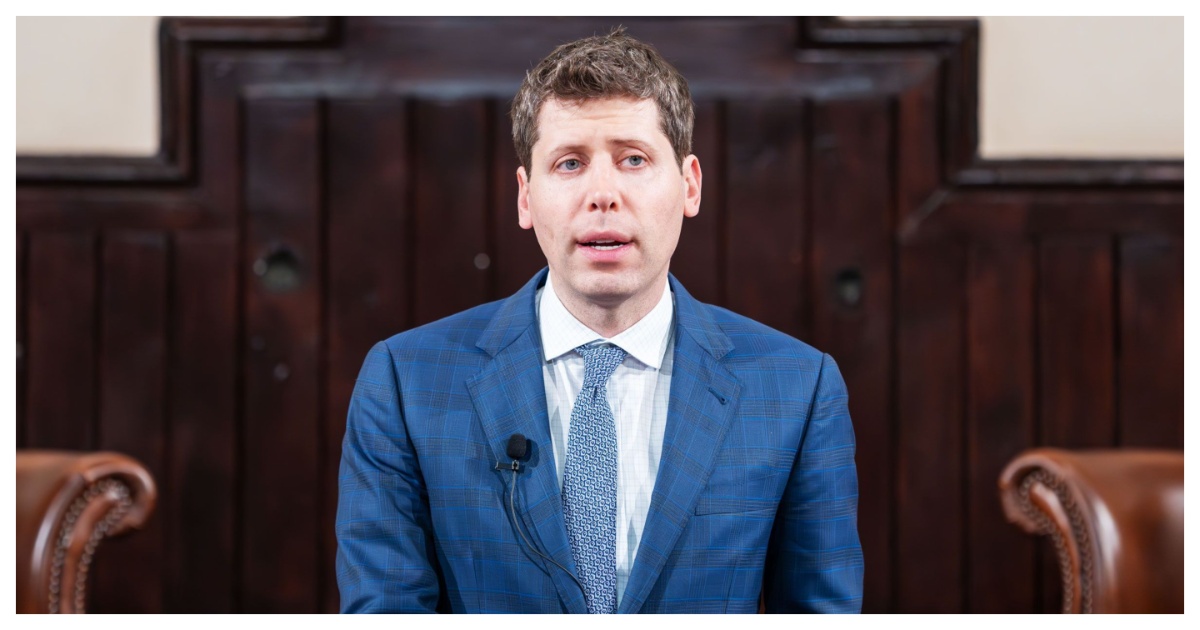There appears to be universal acknowledgement in the AI world that the next few years could be quite uncertain — and full of changes.
Sam Altman, the CEO of OpenAI, a company at the forefront of artificial intelligence development, has offered a candid and somewhat sobering perspective on the future. His remarks highlight a deep-seated belief within OpenAI that the ongoing advancements in AI are not just incremental improvements, but rather harbingers of profound societal shifts. Altman’s philosophy emphasizes transparency and widespread public engagement, even as some in the field advocate for a more clandestine approach to AI development.

“I do think things are going to change a lot,” Altman said an a recent interview. “And we try to be super upfront about this and super open about it. We are. Part of the reason that we try to release the technology, even in this imperfect state, is that I think, we all think at the company, it’s really important that the whole world get a sense of what’s happening.”
He further elaborated on the rationale behind this open approach: “Many people in the field have advocated that this should be developed more in secret, and there are reasons for that. I don’t want to totally dismiss it from a safety perspective. But this is going to be such a massive change to so many aspects of society that we need the world as a whole, as many people as we can, to understand this, to weigh in on it, for people and institutions to have time to think about this, to understand it, to really feel it and gradually update and decide how we all want to move forward, what a global regulatory framework should be like, what the social norms are going to be, how we want to use this,” he said.
“There are gonna be scary times ahead and there’s going to be a lot of transition,” Altman said. “(But) I’m very confident this can be managed. I think the more we can all do it together, the the more likely we’ll get something that works for all of us. But it does mean we have to confront what I think will be one of the biggest technological changes we’ve ever had to confront,” he added.
Altman said that the positives from AI will outweigh the negatives. “I think there will be good and bad. Far, far more good than bad, like orders of magnitude more good than bad,” he said.
Altman’s emphasis on public understanding and engagement stems from the anticipated scale of AI’s impact. He envisions a future where AI will fundamentally reshape industries, redefine labor markets, and even influence our social structures and norms. The call for a global regulatory framework and a collective decision-making process underscores the unprecedented challenges and ethical considerations that lie ahead. The “scary times” Altman alludes to likely encompass the disruptive potential of AI, including job displacement, the need for new economic models, and the complex ethical dilemmas surrounding autonomous systems and their implications for human agency and control.
This transparent stance from a leading AI figure like Altman reflects a growing recognition within the industry that the development of advanced AI cannot occur in a vacuum. The rapid advancements, exemplified by the proliferation of powerful large language models and generative AI tools, have already begun to impact various sectors. Governments worldwide are grappling with how to regulate this nascent technology, with discussions ranging from data privacy and algorithmic bias to accountability and the potential for misuse. The European Union’s AI Act, for instance, represents one of the most comprehensive attempts globally to establish a regulatory framework for AI, categorizing systems by risk level and imposing varying degrees of scrutiny. Similarly, the United States has seen ongoing debates and executive orders aimed at guiding responsible AI innovation. Altman’s perspective serves as a vital reminder that navigating this transformative era will require not only technological prowess but also broad societal dialogue, thoughtful governance, and a collective willingness to adapt to unprecedented change.
